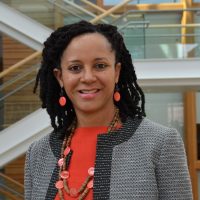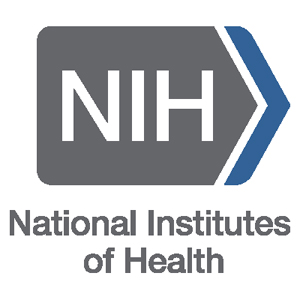NIH funds community engagement research efforts in areas hardest hit by COVID-19
October 19, 2020
The National Institutes of Health (NIH) recently announced a $12 million award for outreach and engagement efforts in ethnic and racial minority communities that are being disproportionately affected by the COVID-19 pandemic.
The award to RTI International, a nonprofit research institution, will support teams in 11 states that are being established as part of the NIH Community Engagement Alliance (CEAL) Against COVID-19 Disparities. These teams have received initial funding to immediately create CEAL programs, and RTI will serve as the Technical and Administrative Support and Coordination center — with Linda Squiers, PhD, serving as the technical lead.
“RTI is honored and committed to supporting all 11 research teams’ work with communities that have been disproportionately affected by the COVID-19 pandemic,” Squiers said.

Dr. Anissa Vines
In North Carolina — where RTI has its headquarters — the CEAL principal investigator is Anissa I. Vines, PhD, assistant professor of epidemiology at the UNC-Chapel Hill Gillings School of Global Public Health, adjunct assistant professor of social medicine at UNC’s School of Medicine and faculty associate at CEAL’s administrative home, the UNC Center for Health Equity Research.
Joining Vines as principal investigators of the N.C. CEAL Research Team are Alan Richmond, MSW, executive director of Community-Campus Partnerships for Health at the Patient-Centered Outcomes Research Institute, and Goldie Byrd, PhD, director of the Maya Angelou Center for Health Equity at the Wake Forest School of Medicine. Vines has extensive experience developing and leading initiatives that reduce and eliminate health disparities through research engagement with the community; programs to train health disparities scholars; and the development and use of innovative research methods and approaches.
“The process of rapidly mobilizing a team of community and academic leaders to become part of the CEAL Alliance was truly like no other that I have ever experienced — a testament to the long-standing collaborative partnerships that my colleagues and I have respected and nurtured over the years,” Vines said. “This is such an important opportunity to formalize an infrastructure of community-based organizations, academics and other key stakeholders to address inequities unveiled by the pandemic.”
Other members of the N.C. CEAL research team include Giselle Corbie-Smith, MD; Krista Perreira, PhD; Jada Brooks, PhD, RN; Stephanie Baker, PhD; Mary Wolfe, PhD; Guarav Dave, MD, DrPH; Lori Carter-Edwards, PhD; Allison Mathews, PhD. Representatives from North Carolina’s ethnic minority communities will form another critical part of the research team.
Across the country, the 11 CEAL research teams will focus on COVID-19 awareness and education research, especially among Black/African-American, Hispanic/Latino and American Indians communities — populations that account for more than half of all reported cases in the United States. The research teams also will promote and facilitate the inclusion and participation of these groups in vaccine and therapeutic clinical trials to prevent and treat the disease.
The communities of special focus include counties in Alabama, Arizona, California, Florida, Georgia, Louisiana, Michigan, Mississippi, North Carolina, Tennessee and Texas.
“Addressing health disparities affecting racial and ethnic minority populations has long been a priority for NIH,” said NIH Director Francis S. Collins, MD, PhD. “The burden of the COVID-19 pandemic borne by diverse communities, especially those that include Blacks and Latinos, makes clear the urgent need for treatments and vaccines that are effective for all Americans. Inclusive research that reflects the entire population is essential to this goal.”
 CEAL is an NIH-wide effort led by the National Institute on Minority Health and Health Disparities (NIMHD) and the National Heart, Lung, and Blood Institute (NHLBI). It expands existing community outreach efforts already underway by NIH COVID-19 trial networks.
CEAL is an NIH-wide effort led by the National Institute on Minority Health and Health Disparities (NIMHD) and the National Heart, Lung, and Blood Institute (NHLBI). It expands existing community outreach efforts already underway by NIH COVID-19 trial networks.
The CEAL research teams will leverage established relationships between NIH-funded researchers and local community-engaged leaders to help reach underserved communities that might not be located near COVID-19 clinical research recruitment sites.
“Building on the strength of local organizations, as well as our long-standing community-engaged research efforts, will help us communicate effectively to address disparities and support the proven resilience within communities,” said NIMHD Director Eliseo J. Pérez-Stable, MD. “This work will help ensure people get accurate and trustworthy information about the virus, how to reduce its spread, and how to protect themselves and their families.”
CEAL research teams include NIH and other federally funded entities that have community engagement expertise, non-academic community-based organizations, Federally Qualified Health Centers, state and/or local health departments, and others. Their goal is to quickly launch outreach efforts that can help reduce the impact of COVID-19 on the most vulnerable populations and to evaluate these efforts through community-engaged research.
“Since communities of color have been particularly affected, and also historically underrepresented in clinical research, it is essential that we encourage people to join COVID-19 research studies,” said NHLBI Director Gary Gibbons, MD. “That’s why NIH is partnering with messengers who live, work and worship in the same communities where the disease has caused the highest rates of sickness and death. In the middle of a pandemic, people need to hear familiar, trusted voices they know are advocating for their health and safety.”
For more information about CEAL, visit the NIH COVID-19 communities page.
This story originally was posted as an NIH news release.
Contact the Gillings School of Global Public Health communications team at sphcomm@unc.edu.
